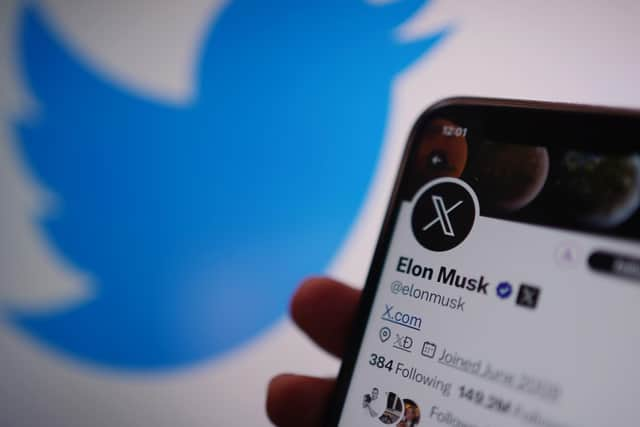Exploding myths about brand in wake of Elon Musk's Twitter upheaval: Tom Fowler
There’s a common misconception that the sole job of brand is to set an advertising platform for the purposes of attracting new customers, but this narrow view fails to grasp the immense potential that a strong, insight-driven brand holds.
Enterprises that lead with brand unlock the power of differentiation, emotional connection, and internal alignment, ultimately driving profitable growth. But management teams also need to use brand like a compass, guiding every decision.
Advertisement
Hide AdAdvertisement
Hide AdBrand is a strategic tool for your business. This requires management teams to think differently and lose some of the common misconceptions about brand.


Myth 1: Brand is just a logo
While companies with a strong brand identity can eventually become synonymous with their logo, your brand has to be more than just an image. Rather, it’s a positioning that drives a perception of your business. Having a distinct way that stakeholders think about your business separates you from your competitors. This is the power of a brand.
Myth 2: Brand is just for attracting customers
A strong brand acts as a platform for staff ‘belonging’ and pride, enhancing productivity and employee satisfaction. In today’s competitive landscape, prospective employees seek more than just a paycheque; they seek fulfilment and alignment with the companies they choose to work for. A strong brand can also attract investors by helping to portray business value. Strong brands demonstrate future potential, protect intellectual property, and can ultimately enhance multiples.
Myth 3: Brand is just for B2C businesses
Some say that brand building is only important for consumer-facing companies, while those that sell to other businesses need not waste time on it. I’d argue the opposite: by standing out amidst a sea of generic providers, B2B companies can forge deeper connections with their target market, leading to long-term loyalty and profitable partnerships.
Advertisement
Hide AdAdvertisement
Hide AdIn fact, you could say a strong brand is even more important in B2B where relationships are often long term, but contracts are regularly reviewed. In many B2B industries where businesses can often appear indistinguishable, the strength of brand can set a company apart.
Facing the same challenge, Clipper Logistics recognised the need to differentiate themselves. Propaganda worked with the business to transform their industry perception from easily replaceable ‘men in vans’ to essential business partners who ‘enable retail’. Ultimately this helped reinforce internal culture and played a major role in building relationships with large retailers like John Lewis.
Brand is a strategic imperative that impacts every aspect of a business. Companies that embrace the true power of brand, leveraging its potential to differentiate, connect emotionally, and align internally, are the ones that will thrive.
Tom Fowler is Planning Director at Propaganda Brand Consultancy. His recent whitepaper exploring how brands drive business momentum is available at www.propaganda.co.uk/brand-multiple-whitepaper.